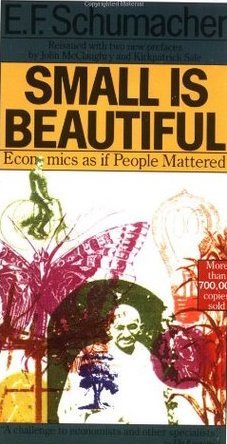More on this book
Community
Kindle Notes & Highlights
Read between
January 2 - January 16, 2025
If the economist fails to study meta-economics, or, even worse, if he remains unaware of the fact that there are boundaries to the applicability of the economic calculus, he is likely to fall into a similar kind of error to that of certain medieval theologians who tried to settle questions of physics by means of biblical quotations. Every science is beneficial within its proper limits, but becomes evil and destructive as soon as it transgresses them.
For example, having established by his purely quantitative methods that the Gross National Product of a country has risen by, say, five per cent, the economist-turned-econometrician is unwilling, and generally unable, to face the question of whether this is to be taken as a good thing or a bad thing. He would lose all his certainties if he even entertained such a question: growth of GNP must be a good thing, irrespective of what has grown and who, if anyone, has benefited. The idea that there could be pathological growth, unhealthy growth, disruptive or destructive growth is to him a perverse
...more
To have to grapple with divergent problems tends to be exhausting, worrying, and wearisome. Hence people try to avoid it and to run away from it. A busy executive who has been dealing with divergent problems all day long will read a detective story or solve a crossword puzzle on his journey home. He has been using his brain all day; why does he go on using it? The answer is that the detective story and the crossword puzzle present convergent problems, and that is the relaxation.
So what does he do? He tries to get into the suburbs and becomes a commuter. Because rural culture has broken down, the rural people are fleeing from the land; and because metropolitan life is breaking down, urban people are fleeing from the cities.
As Gandhi said, the poor of the world cannot be helped by mass production, only by production by the masses. The system of mass production, based on sophisticated, highly capital-intensive, high energy-input dependent, and human labour-saving technology, presupposes that you are already rich, for a great deal of capital investment is needed to establish one single workplace. The system of production by the masses mobilises the priceless resources which are possessed by all human beings, their clever brains and skilful hands, and supports them with first-class tools.
The task, then, is to bring into existence millions of new workplaces in the rural areas and small towns. That modern industry, as it has arisen in the developed countries, cannot possibly fulfil this task should be perfectly obvious. It has arisen in societies which are rich in capital and short of labour and therefore cannot possibly be appropriate for societies short of capital and rich in labour.


